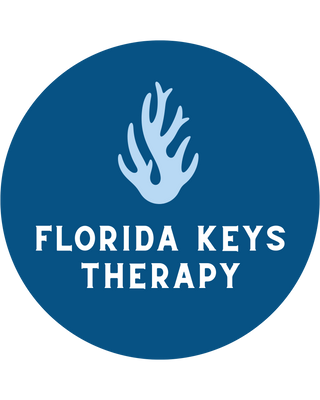Understanding Therapy for Parents: A Path to Strengthened Relationships and Personal Growth

Parenting is one of the most rewarding, yet challenging roles anyone can take on. The pressures of raising children, managing a household, and maintaining personal well-being can often lead to stress, frustration, and burnout. This is where therapy for parents can be a valuable resource. In this article, we explore the many ways therapy can support parents in nurturing themselves, their relationships, and their families.
Why Therapy for Parents Is Essential
Parenting involves managing multiple roles—caregiver, disciplinarian, teacher, and emotional support system—often all at once. These responsibilities can lead to overwhelming emotions such as stress, guilt, and confusion. Therapy for parents provides a safe space to explore these feelings, find healthier coping strategies, and ultimately become more balanced and effective in their parenting.
1. Coping with Stress and Overwhelm
Raising children is a demanding task that can take a toll on parents’ mental health. Therapy provides parents with the tools to manage stress, build resilience, and regain a sense of control over their lives.
2. Enhancing Communication Skills
Effective communication is essential in every family dynamic. Therapy can help parents learn how to express themselves clearly and listen actively to their children, fostering healthier, more open relationships.
3. Navigating Parenting Challenges
Each child has their own needs, and every family experiences unique challenges. Whether it’s dealing with behavioral issues, academic pressure, or sibling rivalry, therapy for parents helps provide guidance on how to handle these situations constructively.
Types of Therapy for Parents
Different therapeutic approaches are available to support parents, depending on their specific needs and goals. Here are some common types of therapy for parents:
1. Individual Therapy
Individual therapy for parents provides one-on-one support, where parents can address personal issues affecting their ability to parent effectively. This can include dealing with past trauma, anxiety, depression, or self-esteem issues.
2. Couples Therapy
Parenting is often a joint effort, and couples therapy can help partners navigate challenges together. It can address communication issues, conflict resolution, and differences in parenting styles, ultimately fostering a more cohesive family unit.
3. Family Therapy
Family therapy involves working with the entire family to address specific issues that may be affecting the dynamics between parents and children. It provides a space for everyone to voice their concerns and work toward solutions together.
4. Parenting Coaching
Parenting coaching is a more solution-focused approach where a therapist guides parents in developing effective strategies for handling everyday parenting situations. It can be especially helpful for parents facing specific challenges, such as dealing with difficult behaviors or managing work-life balance.
The Benefits of Therapy for Parents
There are numerous benefits to seeking therapy for parents, including:
1. Reduced Stress and Burnout
Parenting can be a 24/7 job, and the constant demands can lead to burnout. Therapy provides parents with coping mechanisms to manage their stress levels and avoid emotional exhaustion.
2. Stronger Parent-Child Relationships
Therapy helps parents understand their children’s needs better, improve communication, and develop healthier parenting strategies. This leads to stronger, more nurturing relationships.
3. Better Emotional Regulation
Therapy teaches parents how to manage their emotions more effectively, preventing reactive behavior that could negatively impact their children.
4. Greater Self-Awareness
Through therapy, parents gain a deeper understanding of their own needs, triggers, and patterns. This self-awareness allows them to be more intentional in their parenting and personal life.
What to Expect in Therapy for Parents
If you’re considering therapy for parents, you might be wondering what the process will be like. Here’s a breakdown of what you can expect:
1. Initial Assessment
In the first session, your therapist will likely ask about your current situation, including your parenting challenges, family dynamics, and personal history. This helps the therapist understand your unique needs and develop a tailored approach to therapy.
2. Goal Setting
Once the therapist has a clear understanding of your situation, you’ll work together to set goals for therapy. These could range from improving communication with your child to finding better ways to manage stress or balancing work and family life.
3. Ongoing Sessions
Therapy for parents typically involves regular sessions where you’ll explore the challenges you’re facing, develop coping strategies, and track your progress. These sessions may include practical exercises, mindfulness techniques, and strategies for applying what you’ve learned to real-life situations.
4. Reflection and Growth
Throughout the therapy process, you’ll be encouraged to reflect on your progress and any changes in your behavior or mindset. The goal is not just to address the immediate challenges, but also to promote long-term personal growth and improved family dynamics.
Common Parenting Issues Addressed in Therapy
Therapy for parents can address a wide range of issues that affect both personal and family well-being. Some common challenges include:
1. Parenting Styles and Conflicts
Many parents struggle with differing parenting styles. Therapy helps navigate these differences and find common ground for consistent parenting strategies.
2. Behavioral Issues with Children
Dealing with children’s behavioral problems can be frustrating for parents. Therapy can offer insights into the root causes of these issues and suggest practical techniques to manage and improve behaviors.
3. Work-Life Balance
Balancing a career with parenting responsibilities is one of the most common challenges parents face. Therapy can help parents find a healthier balance that reduces stress and promotes family well-being.
4. Dealing with Life Transitions
Life changes such as a new job, divorce, or moving can disrupt family dynamics. Therapy can guide parents through these transitions and offer support during challenging times.
How to Get Started with Therapy for Parents
If you’re considering therapy for parents, it’s essential to take the first step toward seeking support. Here’s how to begin:
1. Research Therapists in Your Area
Start by researching therapists in your area who specialize in family therapy, parenting, or individual therapy. Online directories or personal referrals can be helpful resources.
2. Schedule a Consultation
Many therapists offer free consultations where you can discuss your needs and determine if the therapist is a good fit for you. Use this time to ask questions about their approach, experience, and therapy style.
3. Be Open and Honest
To get the most out of therapy, it’s important to be open and honest with your therapist. Share your concerns, struggles, and goals to ensure that you receive the support you need.
Conclusion
Parenting is a rewarding journey, but it comes with its share of challenges. Therapy for parents offers the opportunity to gain insight, develop coping strategies, and create a healthier, more harmonious family environment. By seeking professional support, you can strengthen your relationships, manage stress, and become the best version of yourself for both your children and your own well-being.
If you’re feeling overwhelmed, seeking therapy can be the first step toward improving your mental health and your family life. Taking care of yourself helps you take better care of your loved ones.






